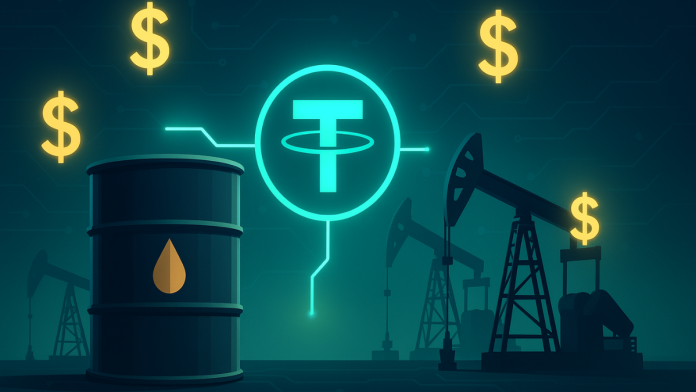Venezuela, one of the world’s largest oil producers, is taking an unusual path to keep its oil trade flowing. Instead of relying on banks, the country has started using USDT, a type of digital dollar called a stablecoin, to settle payments for crude oil shipments.
This move comes as Venezuela faces tough restrictions in the global banking system. Traditional payments in U.S. dollars are often blocked due to sanctions. By turning to USDT, which is tied to the value of the U.S. dollar but exists on blockchain networks, Venezuela can sidestep those barriers and continue selling oil abroad.
USDT is different from volatile cryptocurrencies like Bitcoin. It holds a stable value and is widely used in global crypto markets. For Venezuela, that stability makes it a useful tool for receiving payment for oil exports without losing value overnight.
Venezuelan crude oil makes a stealth return — Chevron tankers dock in U.S. ports despite sanctions
How the USDT Oil Trade Works
The system is designed to work outside the normal channels of international finance. Oil buyers are asked to send their payments in USDT. These transactions are routed through state-controlled banks and sent to pre-approved companies. Payments are stored in designated digital wallets under government oversight.
Once the government receives USDT, it doesn’t just keep it. Instead, it resells the stablecoin to supply companies and service providers inside the country. These businesses then pay in local currency, which injects much-needed liquidity into Venezuela’s economy.
In practice, this creates a parallel dollar market inside Venezuela. Instead of depending solely on physical dollars, the government uses digital dollars to provide stability and access to companies. Local businesses also benefit, as USDT allows them to hedge against the fast-declining value of the national currency, the bolívar.
178 global probes link Panama companies to Venezuelan corruption schemes worth billions
Economist Asdrubal Oliveros has explained that Venezuela’s reliance on USDT has increased in recent months, with the system now reaching into corporate treasuries as well. According to his analysis, businesses are using USDT not only for oil transactions but also to manage liquidity and protect themselves from bolívar devaluation.
Reports from the local economic analysis firm Ecoanalitica show that the setup is already shaping domestic markets. In July 2025 alone, more than $119 million flowed into the private sector through USDT transactions. That injection of digital dollars is helping companies cope with inflation and strict currency controls.
Risks Behind the Strategy
While the use of USDT brings clear advantages, it also carries serious risks. The stablecoin is issued by Tether, a private company that complies with international regulations. If U.S. authorities decide that wallets connected to Venezuela’s oil trade are violating sanctions, they could freeze those assets.
Canada lowers Russian oil price cap to $47.6 per barrel in coordinated sanctions
This risk leaves both the government and local businesses vulnerable. A sudden freeze would mean that millions in oil payments could disappear overnight. Unlike Bitcoin or other decentralized currencies, USDT is centralized, meaning it can be blocked if regulators intervene.
Despite these dangers, Venezuela’s reliance on USDT is expanding. Reports indicate that the state-owned oil company PDVSA had already required more than half of crude shipment payments to be made in stablecoins back in 2024. Now, the share is even larger, showing how deeply the government has embraced this digital tool.
The use of USDT in oil trade is also part of a bigger global trend. Countries under sanctions or facing unstable economies are increasingly looking at digital currencies as a way to keep trade alive. For Venezuela, the decision highlights just how important stablecoins have become in times of financial isolation.


